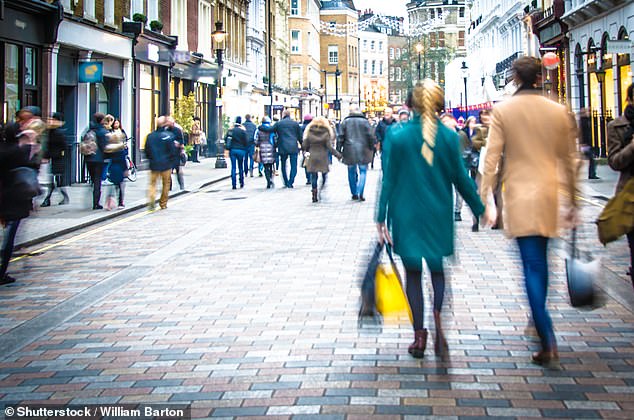Were it not for the drama over US tech stocks that has mesmerised markets, the crisis playing out on our high streets following Rachel Reeves’ disastrous Budget would have received the full attention it deserves.
Damage to retailers is already horribly visible ahead of the National Insurance increases and business rate hikes due to bite in April.
Reeves has aimed a torpedo at our high streets that has left our best-loved retailers reeling, along with smaller shops.
More than 10,000 high-street jobs have been put in jeopardy in the past few days alone.
The axe is falling heavily at the big supermarkets. Sainsbury has accelerated a cost-cutting programme, in part due to the Budget, taking out 3,000 jobs. WM Morrison is shedding more than 200 staff and has refused to rule out further losses.
Tesco is removing 400 roles. Fashion chain Quiz is in difficulty, casting a cloud over its 1,500 staff. A For Sale sign has been hoisted over W H Smith’s high street business, which employs 5,000.

Cookware company Lakeland, with 1,000 staff, is also on the block.
This is just the start. The Centre for Retail Research forecasts there will be just under 17,350 store closures in 2025 and around 202,000 job losses. The labour market has been extremely robust in recent years, but this comes at a time when job vacancies are showing a sharp decline.
In fairness, not all of the woes afflicting retailers are attributable to Labour or Rachel Reeves. High streets have been struggling for years.
The debt-driven expansion drive in the noughties, when rents spiralled, was followed by collapses in the financial crisis, when Woolworths was the most famous to go under. Retailers have also had to contend with online competition, the pandemic and ruinous business rates.
To add to the troubled landscape, shoplifting has hit a record high, costing stores £2.2billion in 2023/4. Violence and abusive incidents hit a shocking 2,000 a day.
All the more reason then, for Reeves to avoid adding to the misery. Yet her Budget was brutal for retailers.
Business rate relief is being slashed from 75 per cent to 40 per cent and promises of a wholesale overhaul to make the system fairer seem to have been kicked down the road.
As well as the increase in the rate of employers’ National Insurance from 13.8 per cent to 15 per cent, firms face a lowering of the threshold at which they start paying contributions on their staff’s earnings.
In a less publicised measure, this will fall to £417 a week from £758.
Despite Labour’s claims to the contrary, these are taxes on workers who will pay more for their shopping at the till as retailers seek to defray some of the extra costs by passing them on to customers. And, of course, the NI hikes will have a chilling effect on employment in retail.
One bitter irony for Reeves, who has touted her status as the first female Chancellor in No 11, is that low-paid women, who make up the majority of retail employees, will be so badly affected.
Gloom on the high street affects the national mood, which is already grim due to Keir Starmer and Reeves talking down the economy in their obsession with smearing their Tory predecessors.
Consumers are inclined to put off purchases, large and small, when confidence is low. Even I – and I yield to no-one as a devotee of retail therapy – am in danger of losing the will to shop.
DIY INVESTING PLATFORMS
Affiliate links: If you take out a product This is Money may earn a commission. These deals are chosen by our editorial team, as we think they are worth highlighting. This does not affect our editorial independence.

